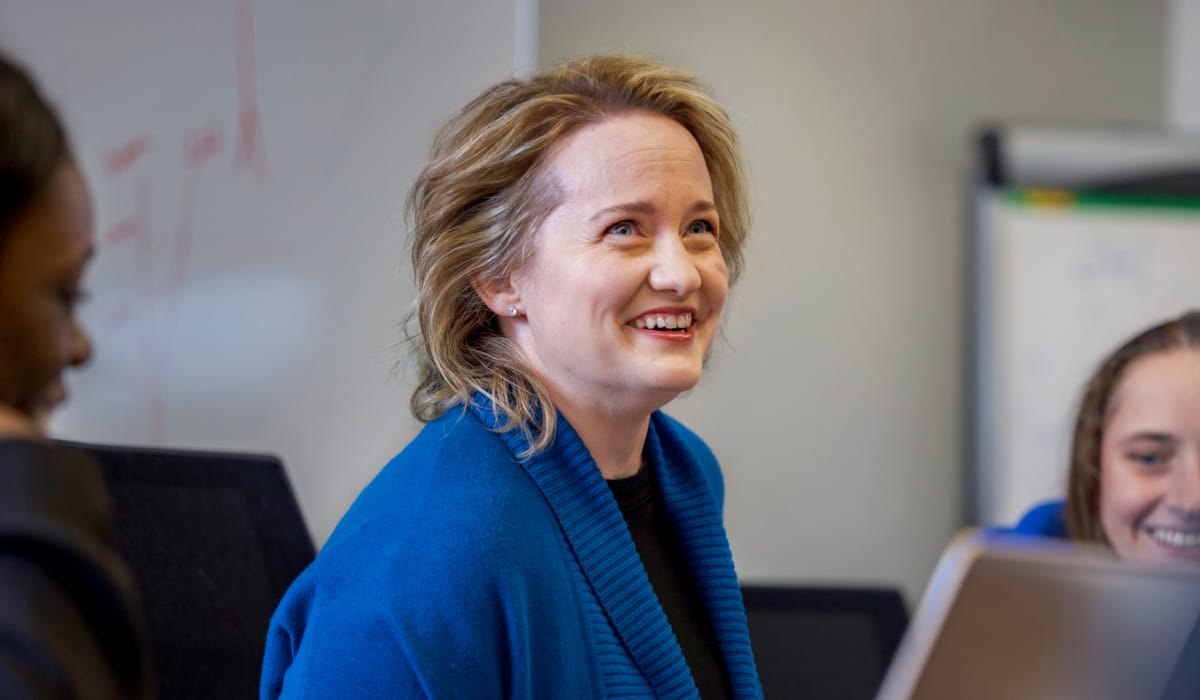Healthcare quality improves when people can access care on their own terms, accounting for their individual values, attitudes, and beliefs. In some U.S. communities, a shortage of healthcare professionals makes it difficult for people to obtain the personalized care they need. This is especially true for rural areas, where the number of healthcare providers has declined in recent years, and for historically marginalized groups of people, who may not be able to find high-quality or accessible healthcare providers who reflect their cultures or experiences. To advance health equity, we must have providers who go beyond cultural competence to recognize and treat individual differences by practicing medicine with cultural humility. In creating the Anthem Health Equity Scholarships, we contribute to increasing the diversity and alleviating the shortage of healthcare providers in historically marginalized and underserved communities.
Rural communities often contend with high levels of poverty, food insecurity, and other social drivers of health that lead to health inequities. In Kentucky alone, there are shortages of rural health professionals in more than 40 different practice categories.

Amerigroup Rural Medicine Scholarship recipient and nursing student Laura Sparks engages with her classmates.
Practice areas that qualify for Anthem Health Equity Scholarships include primary care physicians, mental health and substance-use disorder providers, certified nurse midwives, and providers in other key shortage categories. In return, the students commit to working in a rural or underserved community for two or three years after graduation.
Having lived in the rural Blue Ridge Mountains for the better part of my life, I knew I wanted to become a rural Family Nurse Practitioner.… My hope in earning my master’s in Nursing, Family Nurse Practitioner, is to build a culture of trust within these rural communities, a culture of health promotion and holistic care, that will enable future generations to live a healthier lifestyle by increased health literacy.
Initially, scholarships were offered to students who aspired to practice rural medicine. The program quickly expanded to include three additional tracks: disability, racial equity, and tribal. The scholarships for each of these tracks cover tuition and expenses, as well as other costs that could be barriers to education including rent, child or elder care, personal assistance services, and accessible transportation.
“I’m really looking forward to starting the first semester of my nursing studies, and receiving this scholarship makes getting started easier,” says April Grigsby, a native of Kentucky’s Perry County and one of the first scholarship recipients. “Knowing there is a tremendous need for nurses and healthcare workers in this part of the state makes me excited and ready to get to work.”
The Anthem Health Equity Scholarships program began in Kentucky, then expanded in 2021 to include 14 additional states: California, District of Columbia, Florida, Georgia, Indiana, Louisiana, Mississippi, Missouri, Nebraska, Nevada, Ohio, Oklahoma, Tennessee, and Texas.
“When it comes to training the healthcare workforce of tomorrow, the concept of ‘if you can see it, you can be it’ has never been more true or important,” says Leann Horsley, dean of the College of Nursing at East Tennessee State University. “It’s critical that people grow up in communities seeing others like them being successful in a wide variety of healthcare provider roles so they will aspire to do the same. These scholarships show students of all backgrounds that we believe they can be successful in healthcare professions and can help improve the health of their communities.”
This career has been a dream of mine for as long as I can remember, and this scholarship has been instrumental in attaining my goal. I truly feel that nursing is my calling and that I have always had the desire to help others who could not help themselves. Once completing my degree, I plan to work with underserved populations and create access to affordable healthcare in these communities.
1 https://www.cdc.gov/ruralhealth/about.html
2 Rural Health Research Gateway: Rural Health Research Recap (August 2019): https://www.ruralhealthresearch.org/assets/2997-11862/healthcare-access-and-status-among-children.pdf